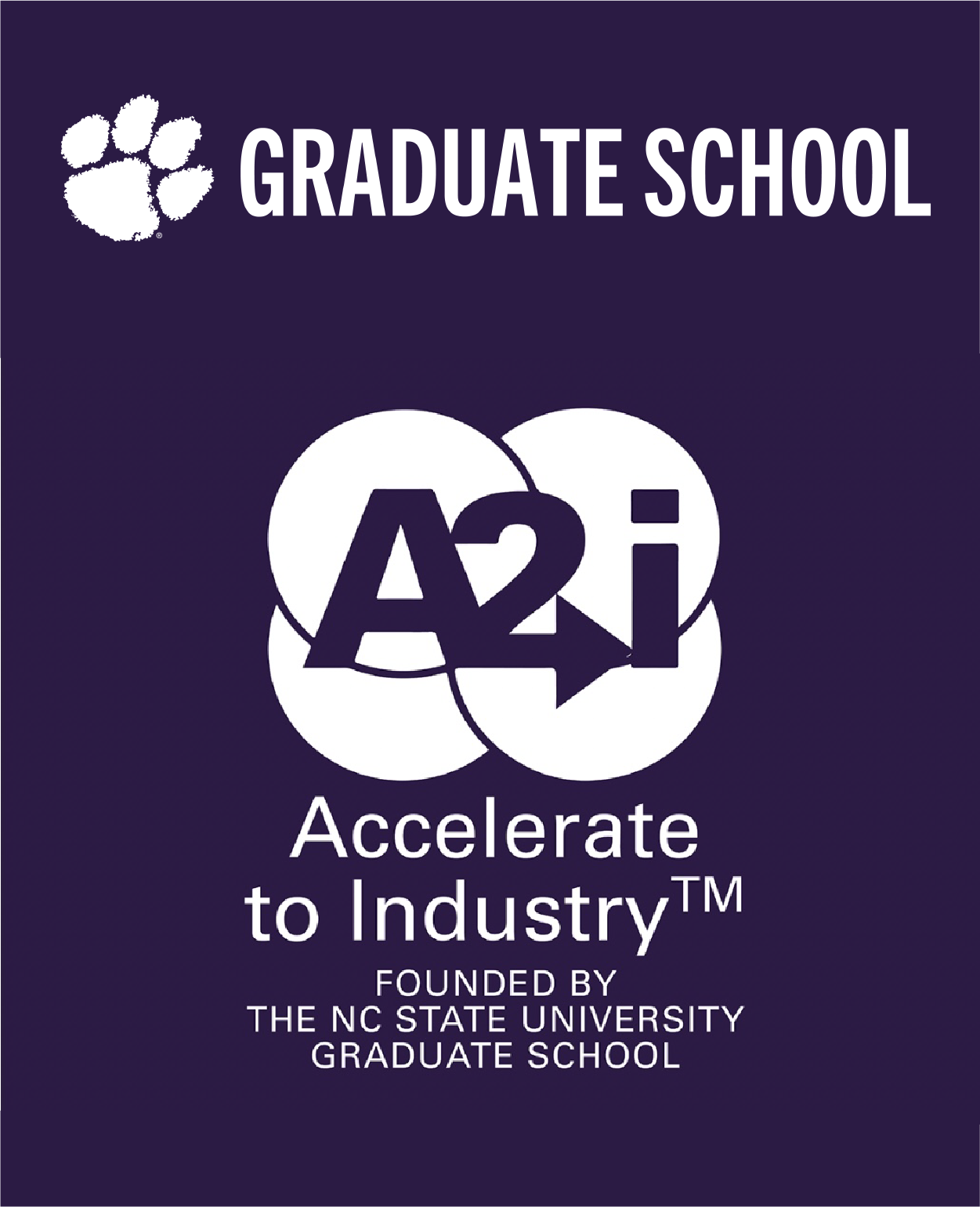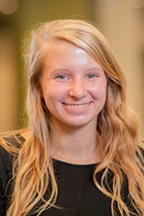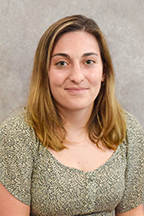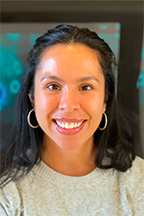- About
-
Academics
- Academics Overview
- Course Numberings
- Deadlines for Completing Your Program
-
Theses and Dissertations
- Theses and Dissertations Overview
- Formatting Requirements
- Templates, Links and Tools
- Plain Language Abstracts
- Plagiarism
- Defending Your Thesis or Dissertation
- Converting Your Manuscript
- Requesting an Embargo
- Submitting
- Revising
- Finishing the ETD Process
- Bound Copies
- Survey of Earned Doctorates
- Thesis and Dissertation FAQs
- Policies and Procedures
- Forms and Requests
- Plan of Study
- Graduation Ceremonies
- Graduate School Interdisciplinary Program
- Admissions
- Professional Development
- Student Services and Groups
 Disha Bhattacharjee
Disha Bhattacharjee
Postdoctoral Fellow
Department of Genetics & Biochemistry
Disha Bhattacharjee is a third-year postdoctoral fellow in the Seekatz lab, which specializes in characterizing a healthy gut microbiome across different hosts. Disha started her research journey by earning her Ph.D. in microbiology at Texas A&M University after obtaining her bachelor of engineering degree in biotechnology from Manipal Institute of Technology, India. In her Ph.D. program, Disha studied the life cycle of a deadly, anaerobic pathogen, Clostridioides difficile, and developed a tool to aid in genetic manipulation of the organism. C. difficile causes Clostridioides difficile infections (CDI), the symptoms of which range from mild diarrhea to fatal colitis, and the organism forms resistant spores, causing a faster spread of CDI. Using genetic manipulation techniques, Disha discovered a novel function in one of the spore proteins and demonstrated that other anaerobic microbes follow a similar mechanism. Currently, she studies the interactions between healthy gut bacteria to prevent diseases like CDI from occurring. Her current position involves developing various bioinformatic pipelines for visualizing the vast information that genomes can provide about commensal organisms such as Clostridium innocuum and Anaerostipes isolated from healthy human fecal samples.
Apart from advancing the field of anaerobic bacteriology, Disha has mentored undergraduate and graduate students for their academic and non-academic careers. She regularly trains graduate students interested in utilizing the power of bioinformatics for their project analyses at Clemson University. Disha has won many awards for her research presented at national and international conferences. Ultimately, she seeks to utilize her skills to manage a team where she can continue to mentor young biologists while developing medical therapeutics.
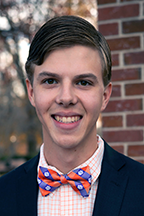 Will Betsill
Will Betsill
Master’s Student
Department of Genetics & Biochemistry
Will Betsill is a second-year graduate student pursuing an M.S. in genetics. He works under Kerry Smith, studying the roles and interactions of acetate transporters in the fungal pathogen Cryptococcus neoformans. Will has particular experience with gene editing and microbiology, among other related fields, and is interested in establishing himself as a scientist in industrial life sciences and biotechnology. Will is active outside the classroom, leading community service initiatives for the Clemson Catholic Student Association and heading the Genetics and Biochemistry Graduate Student Association. Will is a local man hailing from Easley, South Carolina. He received his B.S. in biochemistry from Clemson in 2021.
Katherine E. Charbonneau
Ph.D. Student
School of Mathematical & Statistical Sciences
Katherine Charbonneau is a first-year Ph.D. student. She is currently progressing towards a degree as a full-time student while acting as a teaching assistant for a pre-calculus course. Katherine earned her B.S. in mathematics and international relations at Roanoke College (2023). Her research and interests are utilizing machine learning models to analyze armed conflict.
Leah DeLorenzo
Ph.D. Candidate
Department of Biological Sciences
Leah DeLorenzo is a 5th-year Ph.D. candidate in the biological sciences department at Clemson University. Leah works in Kara Powder’s lab, investigating the genetic and molecular mechanisms that underlie craniofacial divergence using developmental, genetic, and genomic techniques. Leah possesses a robust skill set in molecular biology techniques, including DNA and RNA isolation, PCR, and DNA library preparation. In conjunction with her wet-lab proficiency, Leah demonstrates expertise in the comprehensive analysis of large-scale genomic and transcriptomic datasets, encompassing ATAC-seq and RNA-seq data. Graduating in May of 2024, she hopes to leverage her skills to facilitate the identification of novel drug candidates and advance novel gene and cell therapies.
Publications
- DeLorenzo, L., & K.E. Powder. Epigenetics and the evolution of form: Experimental manipulation of a chromatin modification causes species-specific changes to the craniofacial skeleton. In review.
- DeLorenzo, L., D. Mathews, A.A. Brandon, M. Joglekar, A. Baez, E.C. Moore, P.J. Ciccotto, N.B. Roberts,
- R.B. Roberts & K.E. Powder. (2023). Genetic basis of ecologically relevant body shape variation among four genera of cichlid fishes. Molecular Ecology.
- DeLorenzo, L., V. DeBrock, A. Baez, P. Ciccotto, E.N. Peterson, C. Stull, N.B. Roberts, R.B. Roberts & K.E. Powder (2022). Morphometric and genetic description of trophic adaptations in cichlid fishes. Biology, 11 (8), 1165.
Clara Flores
Ph.D. Student
Department of Biological Sciences
Clara is a fourth-year microbiology Ph.D. student in the Seekatz lab, which studies microbial interactions of the gut microbiome. Clara researches how altered environments caused by human interference affect functional redundancy, the concept that species loss is compensated by other species contributing similar functions. One environment experiencing simplification due to human interference is the human gut via our diet. We know that diet can change the composition of the gut microbiome; however, it remains unclear how these changes affect microbial functional redundancy. Clara aims to understand how diet complexity affects functional redundancy in the gut to better identify how simplifying environments results in ecosystems less equipped to handle disturbances.
After obtaining her B.S. in biology from the University of Texas, she worked in a clinical microbiology lab before moving to Clemson to pursue her Ph.D. She wishes to continue to expand her knowledge and research expertise in the field of next-generation sequencing, as well as develop her machine learning and coding skills. She aims to combine her affinity for lab work and bioinformatics to help develop a new generation of therapeutics that harness the power of the microbiome to benefit human health.
 Spencer Hatfield
Spencer Hatfield
Ph.D. Candidate
Department of Genetics & Biochemistry
Spencer Hatfield, a fifth-year Ph.D. student, is a dedicated researcher with a strong academic background and a passion for genetics and behavioral science. He holds a B.S. in biology with a minor in chemistry from the University of North Carolina at Chapel Hill.
In 2019, Spencer joined the Clemson University Center for Human Genetics as a Ph.D. student under the mentorship of esteemed scientists Trudy Mackay and Robert Anholt. Spencer’s primary research focus centers on investigating the genetics of cocaine use disorder, utilizing the innovative Drosophila melanogaster model system. His work bridges behavioral science, genomics, single-nuclei multiomics, and drug discovery.
In recognition of his outstanding research potential, Spencer was awarded a prestigious predoctoral F31 NIH fellowship, further validating his commitment to advancing the understanding of genetic factors contributing to substance use disorders.
Throughout his academic journey, Spencer has demonstrated a commitment to sharing his insights and discoveries with the scientific community. He has been a featured presenter at a multitude of national and international conferences, including notable talks at the NIDA Genetics and Epigenetics Cross-Cutting Research Team annual meeting, the International Behavioral and Neural Genetics Society (IBANGS) annual meeting, and the Genetics Society of America (GSA) annual Drosophila Research Conference.
Spencer has authored three impactful publications as a graduate student thus far in Genome Research, Translational Psychiatry, and the Journal of Visualized Experiments (JoVE). His contributions to the scientific literature underscore his dedication to advancing knowledge in his field.
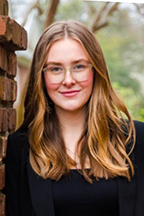 Ellis McLarty
Ellis McLarty
Master’s Student
School of Mathematical & Statistical Sciences
Ellis McLarty is a first-year graduate student focused on data analysis and applied statistics. Her mathematical background allows her to find creative solutions applicable to various industries. Before Clemson, she earned a B.S. in mathematics, a B.A. in music performance, and a performance certificate in cello performance from the University of South Carolina.
Ellis shares the intersection of math and music through interdisciplinary study and inventive performance. Broadly, she engages musical audiences with mathematics through pattern-based, logic-driven composition to foster connections between thought and sound.
Beyond mathematics and music, McLarty values diversity, equity, and inclusion. Special attention to social justice has driven her educational experience inside and outside the classroom.
 Jovana Mitic
Jovana Mitic
Ph.D. Student
School of Mathematical & Statistical Sciences
Born in Nis, Serbia, Jovana Mitic is a first-year Ph.D. student. Mitic holds a B.S. in mathematics with a double minor in computer science and data science from Converse University. During her time at Converse, Jovana played a pivotal role as a lead facilitator and coordinator for the Girls Who Code Club, demonstrating a deep passion for encouraging young girls to explore the world of coding. Drawing from her mathematical expertise, she aspires to apply her skills to a wide range of challenges within data science. Her research interests primarily encompass applied statistics and operations research.
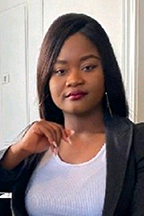 Amara Onoh
Amara Onoh
Ph.D. Student
Department of Genetics & Biochemistry
Amara Onoh is a third-year biochemistry and molecular biology Ph.D. student. Her interest in understanding the molecular basis of diseases such as cancer led her to Clemson, where she works under Michael Sehorn’s tutelage in the department of genetics and biochemistry. She studies the biochemical and molecular roles of DNA repair factors in homologous recombination. Throughout her studies, she has gained excellent technical skills (including protein purification and molecular cloning). Working as a teaching assistant has also helped sharpen her interpersonal and science communication skills. Amara wants a career where she would contribute directly or indirectly to providing therapeutic interventions. She is interested in roles such as research and development, science policy, and management consultancy, but is also willing to explore unconventional roles. She loves to cook and spend time with friends during her free time.
Science Presentation
Poster: The role of MEILB2 in meiotic homologous recombination at the Research in Progress Symposium. Host: Department of Genetics and Biochemistry, Clemson University.
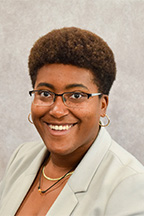 Tokea G. Payton
Tokea G. Payton
Ph.D. Candidate
Department of Biological Sciences
Tokea G. Payton is a fourth-year Ph.D. candidate in the Conservation of Marine Resources lab directed by Michael Childress. Her research focuses on the impact of marine debris and debris removal on the coral reef community in the Florida Keys. Her study aims to provide insight into the socio-environmental effects of marine debris by creating a framework for marine management. Tokea will share this data with relevant stakeholders to provide information for educational outreach and future conservation and fishing management practices.
Tokea holds bachelor’s degrees in marine biology and environmental science with a minor in chemistry, and a master’s in marine biology. She has worked with several environmental entities, holding positions as a marine science educator, education coordinator, science and art consultant, and SCUBA professional. Tokea aspires to bring her marine biology and science education background to become a successful CEO and entrepreneur of her own business. Through the interdisciplinary nature of her research and work experience, she wants to build a company that will promote networking amongst environmental organizations to reduce redundancy, reuse resources, and inspire communities through marine science. Tokea aims to have some of the first inland marine conservation organizations, hoping that those unable to access the ocean will have the means to learn and explore. She hopes to one day partner with NGOs worldwide to promote accessible marine science and conservation.
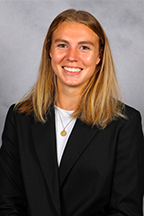 Kassandra Roemer
Kassandra Roemer
Ph.D. Student
Department of Genetics & Biochemistry
Kassandra Roemer is a second-year Ph.D. student in Miriam Konkel’s lab. She works in the field of genomics, and her research currently focuses on deducing evolutionary changes of regions within the Y-chromosome through analysis of gene expression in long-read datasets. In addition, Kassandra also serves as a senator in Graduate Student Government, representing the biochemistry department. In addition, Kassandra also serves as the social media ambassador in the genetics and biochemistry student-recognized organization. Kassandra advocates for graduate students’ well-being and fosters communication between faculty and students. In addition, Kassandra is a former student-athlete, having competed in five years of Division I athletics. She developed highly transferable skills, such as teamwork, time management, discipline, and ambition. In the future, she would like to work in a field related to translational research and clinical trials, being at the forefront of science with her work directly impacting the medical field.
 Prakrit Subba
Prakrit Subba
Ph.D. Candidate
Department of Biological Sciences
Prakrit Subba is a fourth-year Ph.D. student in the Center for Human Genetics, specializing in research at the intersection of neuroscience and avian biology.
Currently, he investigates the neural mechanisms governing learning and memory in zebra finches, along with the neurodevelopmental effects of parental ‘heat calls’ on embryos in high-temperature conditions. He employs advanced techniques such as single-cell sequencing and bioinformatics to uncover the mysteries of avian neurodevelopment.
Prakrit’s interdisciplinary expertise spans molecular biology, biomedical engineering, pharmaceutical/ medical device quality assurance and regulatory science. His ability to seamlessly collaborate within cross-functional teams positions him to drive innovative solutions for real-world scientific challenges in the biomedical and biopharmaceutical industries. Beyond research, Prakrit hosts the podcast “Breaking Silos” and passionately advocates for the advancement of interdisciplinary development in higher education.
Publications
- Subba, P., Condliffe, D., Clayton, D., & George, J. (2023). DNA Methylation of Genes Enriched in Cell Adhesion and Synaptic Plasticity is Correlated with the Habituation of Song Response in Zebra Finches. Frontiers in Neuroscience, Manuscript in preparation.
- Subba, P. (2023, August 23). The path to the No. 1 student experience, unlocking the power of experiential learning at Clemson. The Tiger Newspaper. URL:https://thetigercu.com/13663/opinion/subba-the-path-to-the-no-1-student-experience- unlocking-t he-power-of-experiential-learning-at-clemson/
- Subba, P. (2023, March). Tuning Out the Noise: Investigating the Role of DNA Methylation in Habituation of Song Response in Adult Zebra Finches. Paper presented at the 95th South Carolina Academy of Sciences Conference, Medical University of Charleston, Charleston, SC. (Best Poster Award)
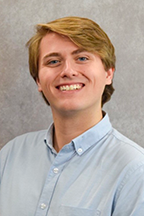 Evan Thibodeaux
Evan Thibodeaux
Master’s Student
Department of Chemistry
Evan Thibodeaux is a third-year chemistry graduate student researcher working in a functional supramolecular materials lab conducting research funded by the National Science Foundation (NSF). His current project involves a bottom-up assembly strategy for materials with the following properties and functions: charge transport/storage,light harvesting, and sensing capabilities.
During his time at Clemson, he has been the recipient of the SCIENCE Graduate Fellowship Award (2021-2023) and has accumulated experience in synthesis, reaction optimization, and crystallization, as well as in utilizing equipment and techniques such as NMR, UV-Vis spectrometry, and mass spectrometry. In addition to research, Evan teaches general chemistry lab sections of approximately 80 students each semester.
Before coming to Clemson, Evan became the lead student researcher in an organic synthesis lab at Winthrop University focused on photoredox-mediated alkylation of imines. While there, he was responsible for training new lab members on conducting research and operating NMR and mass spectrometry equipment. In 2018 and 2019, he presented his research findings at several local and regional conferences, such as the 70th & 71st annual Southeastern Regional Meeting of the American Chemical Society (SERMACS), North Carolina Photochemistry Symposium (N.C. Photochem), IDeA Networks of Biomedical Research Excellence (INBRE).
In his last year at Winthrop, Evan took part in a faculty-mentored research experience in which the skills needed to design and carry out experiments and effectively communicate findings through written research papers and oral presentations were developed. In this experience, he utilized Brookhaven National Laboratory equipment to complete work for his thesis.

